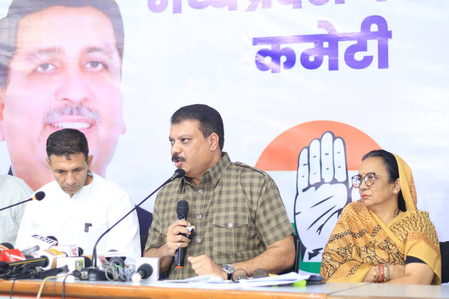
New Delhi, June 5 (IANS) To mitigate delays in poll data dissemination, Chief Election Commissioner Gyanesh Kumar on Thursday approved a technology-driven system to generate Index Cards and various statistical reports after elections.
The upgraded mechanism replaces the traditional manual methods, which were often time-consuming and prone to delays, said an official.
Index Cards form the foundation for generating about 35 Statistical Reports for Lok Sabha elections and 14 for state Assembly elections, he said.
“By leveraging automation and data integration, the new system ensures faster reporting,” said an official.
CEC Gyanesh Kumar and Election Commissioners Dr. Sukhbir Singh Sandhu and Dr. Vivek Joshi said the changes are aimed at faster dissemination of information for academic and research purposes.
The Index Card is a non-statutory, post-election Statistical Reporting Format developed as a suo moto initiative by the Election Commission to promote accessibility of election-related data at the constituency level for all stakeholders, including researchers, academia, policymakers, journalists, and the public, said a statement issued by Deputy Director P. Pawan.
This rich, data-driven resource enhances the capacity for deep electoral research, contributing to a stronger democratic discourse. However, these statistical reports are meant solely for academic and research purposes and are based on secondary data from Index Cards, while the primary and final data remains in the statutory forms maintained by the concerned Returning Officers.
Earlier, this information was manually filled at the Constituency level using various statutory formats in Physical Index Cards, he said.
These physical Index Cards were subsequently used for data entry into the online system to facilitate the generation of statistical reports. This manual, multi-layered process was time-consuming and frequently led to delays in data availability and dissemination, he said.
The Index Cards are designed to disseminate data across multiple dimensions — such as candidates, electors, votes polled, votes counted, party-wise and candidate-wise vote share, gender-based voting patterns, regional variations, and performance of political parties.
–IANS
rch/pgh






